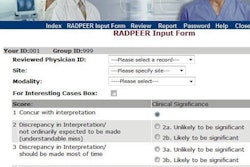In a sternly worded letter mailed on September 24 to five major associations, the U.S. Department of Health and Human Services (HHS) and the U.S. Department of Justice (DOJ) warned that they will not tolerate healthcare fraud related to the meaningful use electronic health record (EHR) incentive program.
Signed by HHS Secretary Kathleen Sebelius and Attorney General Eric Holder Jr., the letter was sent to the chief executive officers of the American Hospital Association, the Association of Academic Health Centers, the Association of American Medical Colleges, the Federation of American Hospitals, and the National Association of Public Hospitals and Health Systems.
More than 55% of hospitals have qualified for meaningful use incentive payments for implementing EHRs, according to the letter. Agencies have identified "troubling indications that some providers are using this technology to game the system," and that "some hospitals may be using EHRs to facilitate 'upcoding' of the intensity of care or severity of patients' condition as a means to profit with no commensurate improvement in the quality of care."
While thanking hospitals for their "relentless work" to adopt electronic records, the agencies said they are escalating their efforts to prevent fraud and to pursue it aggressively when it occurs.
In a statement issued the same day, American Hospital Association (AHA) President and CEO Rich Umbdenstock noted that the AHA has requested 11 times since 2001 that the U.S. Centers for Medicare and Medicaid Services (CMS) develop national guidelines for the reporting of hospital emergency department and clinic visits. To date, no guidelines have been developed.
"What's needed is clearer guidance from CMS, not duplicative audits that divert much-needed resources from patient care," he said. "No one questions the need for auditors to identify billing mistakes, but the flood of new auditing programs, such as recovery audit contractors, [Medicare administrative contractors], and others, is drowning hospitals with a deluge of redundant audits, unmanageable medical record requests, and inappropriate payment denials."



















